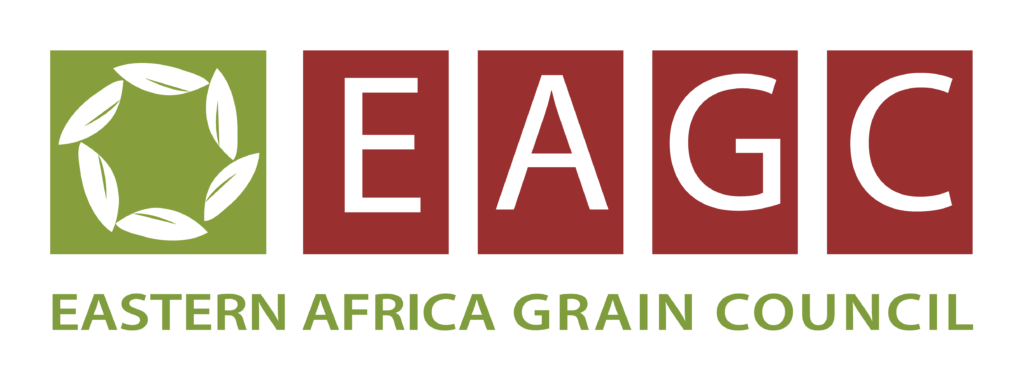By Nancy Marangu, Kimwaga Mhando and Jacinta Mwau
The challenge of post-harvest losses in Uganda’s grain sector looms large, necessitating immediate attention, especially in the context of the effects of climate change. The stark reality of losing nearly 20% of the annual maize crop to post-harvest losses paints a bleak picture of food insecurity, livelihood erosion, and heightened food safety risks. Farmers, the backbone of the agricultural sector, bear the weight of this wasteful cycle. Maize farmers alone endure losses of an estimated Ugx 393 billion worth of maize each year, a value surpassing the annual exports of the crop.
Climate change further exacerbates this challenge. Erratic weather patterns, prolonged droughts or rains, and increased pest pressure are direct outcomes of climate change that contribute to the vulnerability of crops during both pre and post-harvest stages. In this context, the urgency to adopt adaptive strategies becomes even more evident.
A pivotal driver of these losses is the scarcity of affordable and accessible post-harvest technologies. Hermetic Storage Technologies (HSTs), typified by air-tight containers, have demonstrated remarkable efficacy in eradicating post-harvest losses while preserving grain quality. The Eastern Africa Grain Council with support from the USAID Kenya Crops and Dairy Markets Systems (KCDMS) program and the Alliance for a Green Revolution in Africa (AGRA) has been at the forefront of promoting the use of Hermetic Storage Technologies in the East Africa Region given their proven benefits in structuring grain trading systems. Today, Uganda and fellow East African Countries subscribe to harmonized Hermetic storage bags specification standard EAS 985-1:2020. However, the elevated cost of these technologies, compounded by an 18% Value Added Tax (VAT), acts as a deterrent for farmers to embrace them, perpetuating the cycle of losses[JM1] . A typical hermetic bag retails at Ugx 8,000, almost five times the cost of a conventional bag.
To confront this challenge, the zero-rating of VAT on Hermetic Storage Technologies emerges as a critical step to render these vital tools affordable and accessible for farmers. The abolishment of VAT on hermetic bags holds the potential to reduced post-harvest losses and mitigate climate change impacts. With escalated adoption, farmers could salvage approximately 64,950 MT of maize annually, worth Ugx 49.1 billion (US$12.9 million), from post-harvest losses. This surge in uptake would not only augment farmers’ incomes but also engender a Ugx 4.9 billion (US$1.3 million) surge in tax revenue through alternative avenues. Additionally, the escalated export earnings of USD 8.4 million would bolster Uganda’s trade equilibrium.
Beyond monetary dividends, the VAT exemption would yield non-monetary merits, including better food security, a lower import bill for farm inputs reduced reliance on imported inputs, and elevated food safety. Hermetic storage bags negate the necessity for hazardous pesticides, guaranteeing healthier produce for both consumers and farmers. This would engender a positive impact on public health, diminishing disease burdens and healthcare expenditures.
However, the abolition of taxes is merely the initial stride. Sustained endeavors are requisite to raise awareness and popularize the utilization of hermetic storage technologies among farmers. Furthermore, the fortification of structured trading systems would incentivize farmers to adopt these technologies by offering an enticing value proposition.
In summation, the authority to unlock Uganda’s agriculture sector’s potential lies with the Ugandan government. Through the zero-rating of VAT on hermetic storage technologies, farmers can be empowered, post-harvest losses mitigated, and the trajectory set for a more sustainable and prosperous agricultural future, resilient in the face of climate change. Furthermore, unwavering support from development allies and multi-stakeholder collaborations will be pivotal in propelling the adoption of these technologies and metamorphosing Uganda’s agricultural terrain.
To conclude, rendering post-harvest technologies more accessible and economical for farmers transcends mere economic importance; it is an imperative stride towards abating hunger, reinforcing food security, and bestowing farmers with the tools to flourish, even in the wake of climate change. By eliminating VAT on hermetic storage technologies, Uganda can heighten agricultural advancement, productivity, prosperity, and climate governance for its populace.

